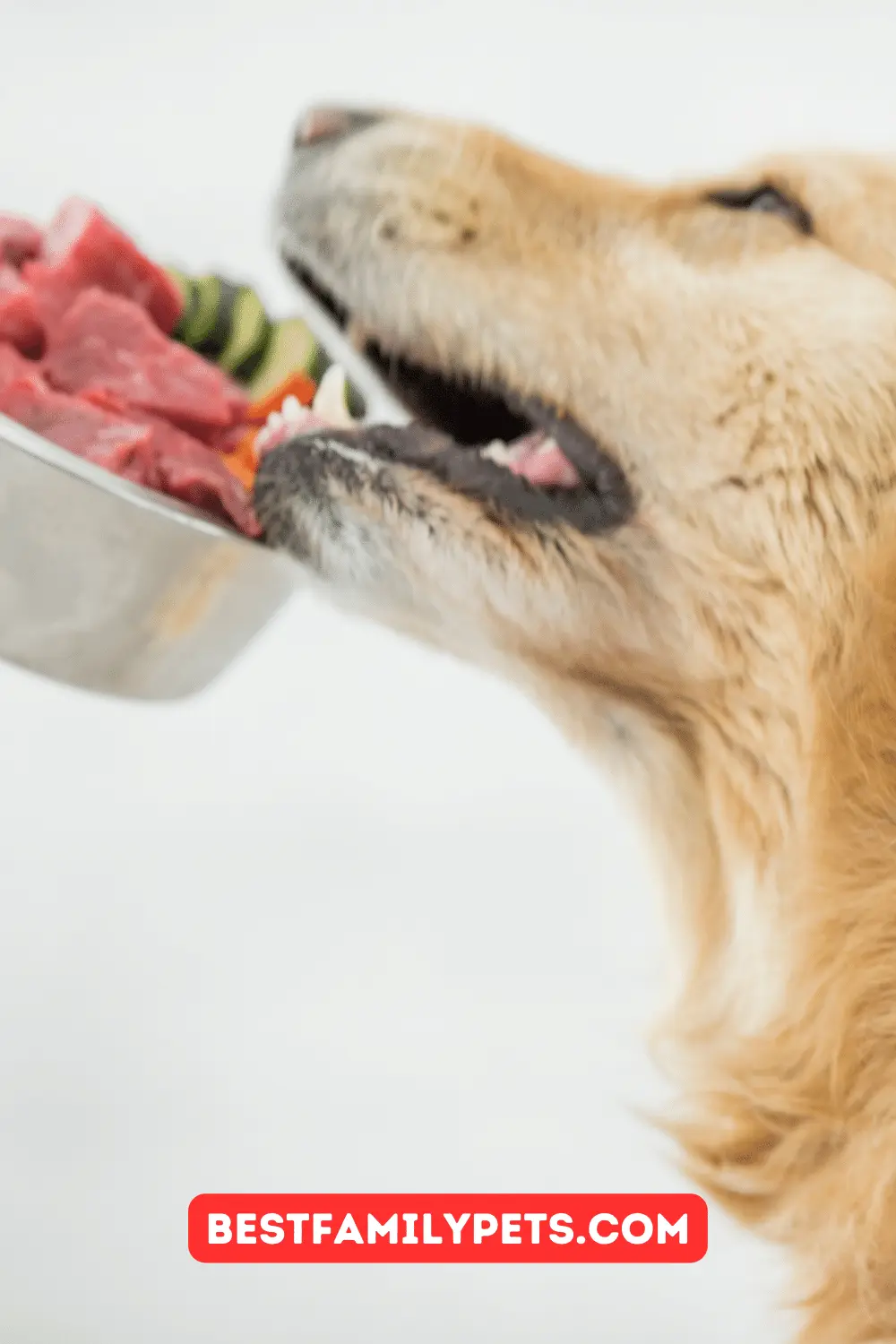Canine Nutrition 101: How To Create Your Dog’s Diet
Unsure about your dog’s diet? Learn the basics of canine nutrition, explore meal planning, and discover tips for creating a healthy, balanced plan for your furry friend.
Dogs are among the most loyal companions anyone could ever have. They’ll love you wholeheartedly without ever asking for anything in return. As a matter of fact, many dog lovers are able to say they can live a fulfilling life with dogs as their only company. After all, if you treat them right, dogs will never hate you, they won’t judge you, and most importantly, they’ll love you for the rest of their short lives.
And even though you may never be able to match the kind of love your canine best friend showers you with, it’s always worth it to keep trying. The best way you can show them your love is by caring for your dog the proper way, which includes providing them with the right nutrition. Besides giving them kibbles, you can create your dog’s diet on your own.
Here’s a recipe you can easily prepare in your kitchen for your dog:
Ingredients:
- 3 ounces of cooked protein (chicken, turkey, or beef)
- 1 and 1/3 cups of a cooked carbohydrate (brown rice, oatmeal, or potatoes)
- 1 tablespoon of vegetables (carrots, spinach, or green peas)
- 1 to 2 tablespoons of fat (olive oil or vegetable oil)
Mix them all together, and you can either top it with eggs or add powdered supplements your dog may need.
This is a simple and versatile recipe that may serve as your basis when figuring out how to go about feeding your dog. You can use different kinds of ingredients in varying amounts as long as the resulting meal meets your dog’s nutritional requirements. To step it up a notch, you can mix in the right probiotic for your dog to improve digestion, skin and coat appearance, and immune response as well as reduce allergy symptoms.
Your canine’s nutritional needs will depend on their size, age, activities, current health condition, and breed. For instance, bigger dogs will require more protein and calcium for growth and development, while older dogs or dogs with kidney problems will require less. Meanwhile, hyperactive, working, or sporting dogs should get more fat and carbs for energy, and dogs with diabetes should consume less. In addition, you may notice that some variants of dog food are formulated for specific breeds.
Human Foods That Can Be Harmful To Dogs
Although the aforementioned recipe can be tweaked depending on your dog’s nutritional needs, you should still be cautious about what food you give your dogs.
Most types of food that are good for humans are also good for canines. However, there are some foods you should never feed your dog. Such foods can be harmful or even fatal to your four-legged buddy, so steer clear of them.
6 Essential Nutrients For Dogs
See to it that you incorporate the following into the diet you come up with for your dog:
- Proteins
Protein is essential for cell growth and building muscles, especially for growing pups. A high-protein diet is usually recommended for working or sporting dogs such as the American Pitbull Terrier.
- Fats
Your dog needs fat for energy. Healthy fats can come from oils extracted from plant seeds or animal sources such as fish oil, which is rich in omega-3 that keeps the skin and coat healthy, among other benefits it provides. Fats are also crucial for vitamin absorption and reproduction.
- Calcium
Calcium helps build strong bones, and some owners give their dogs vitamin C for better calcium absorption. This is a common practice for show dogs so they’ll develop a faultless posture that’s often a big part of dog show criteria.
- Carbohydrates
Carbohydrates are an energy source for dogs, and they help increase stamina, control appetite, and promote better digestion.
- Vitamins And Minerals
Your dog’s diet should involve several vitamins and minerals that are essential in improving their quality of life. In excess, however, such substances can be toxic to dogs. For instance, if you’re feeding your canine premium dog food or a well-balanced meal, added vitamins or supplements may be unnecessary and might do them more harm than good.
- Water
Water is essential for dogs in the same way it’s essential for humans.
How Often You Should Feed Your Dog
The number of feedings per day may vary depending on your dog’s age. Puppies two to three months old should be given four meals a day; puppies three to six months old should be given three meals a day, and puppies six to twelve months and until they reach adulthood should be given at least two meals a day.
Again, this may depend on their activities as well. What’s more, you should watch out for signs of overfeeding such as a sagging stomach, loose or soft stool, or excessive bowel movement.
Final Thoughts
In case you decide to buy wet or dry dog food instead of preparing meals from scratch, make sure you buy brands with the right mix of nutrients. Such options would have statements such as ‘meets the nutritional requirements of dogs established by the American Association of Feed Control Officials (AAFCO)’ or ‘complete and balanced nutrition for dogs based on AAFCO feeding trials’ on their labels. This ensures that the brand is safe and healthy for your canine to consume every day.
-

Purr-fectly Delicious: A Review of Astkatta Iceland Canned Cat Food and Feast Cat Wet Food
-



Feed the Beast Right: Why Pet Nutrition Isn’t Just Kibble and Luck
-



Cat Nutrition Guide for Optimal Feline Health
-


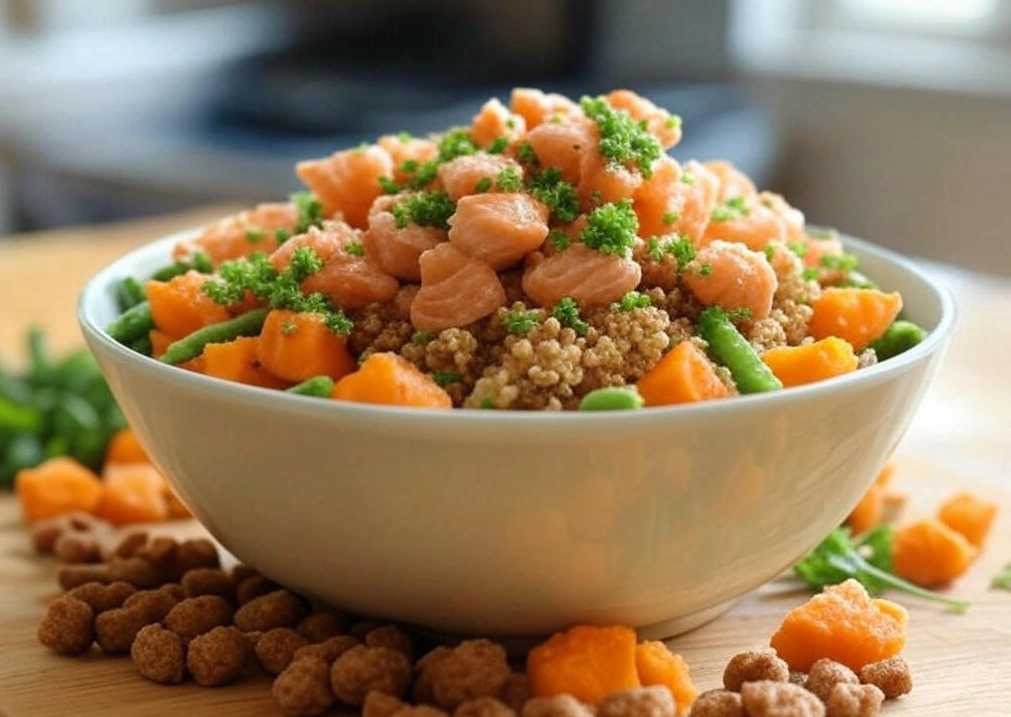
Homemade Dog Food for Shih Tzus With Skin Allergies
-


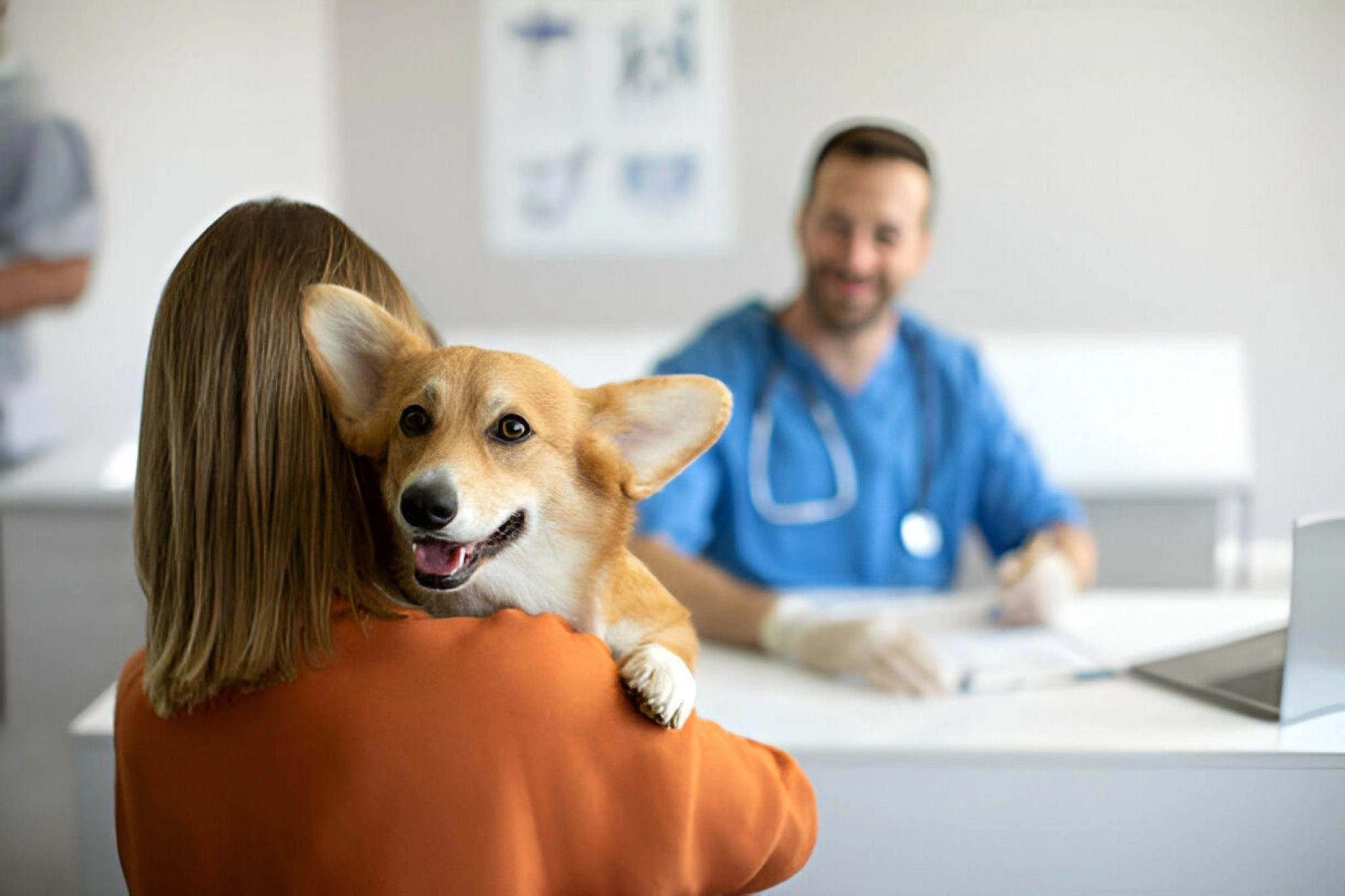
The Role of Veterinarians in Raw Dog Food Safety
-



Puppy Palooza: Role of Gut-Loving Frozen Treats for Happy, Healthy Dogs
-



Raw Dog Food Safety: How to Ensure Your Pet’s Raw Diet Is Balanced and Healthy
-


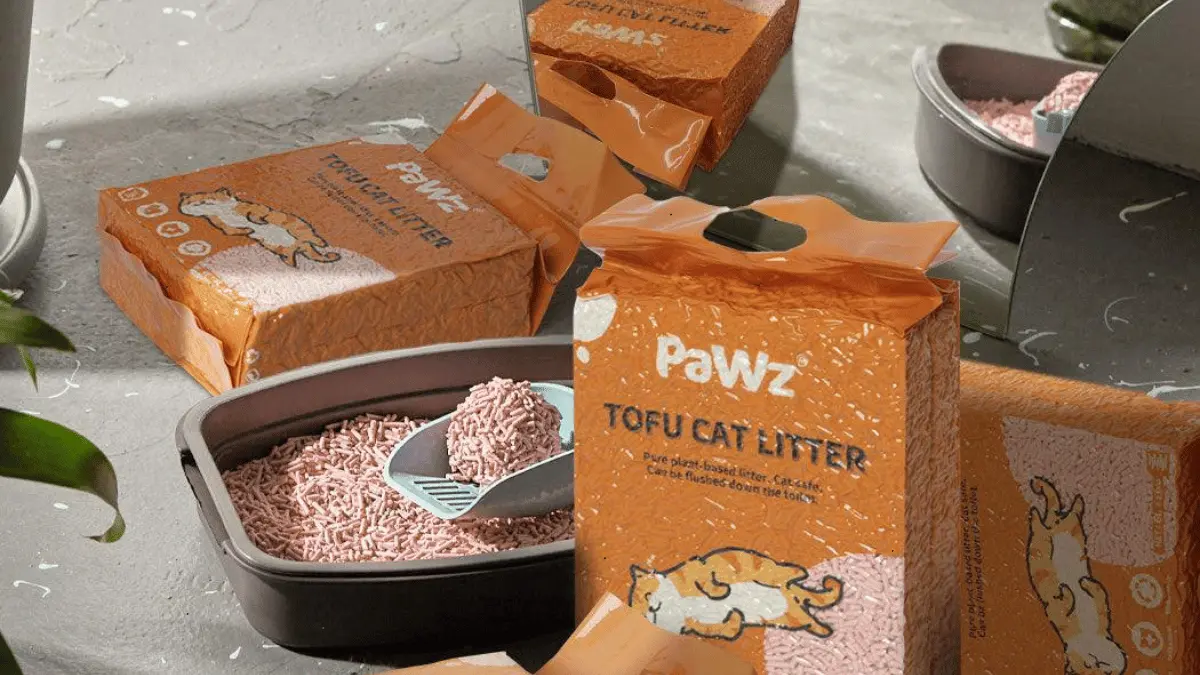
The Ultimate Guide to Choosing the Best Cat Litter: Why Tofu Cat Litter Is a Game Changer
-



Zoo Med: The Ultimate Turtle Food
-



The 12 Best Dog Bowls of 2024 for Dachshunds: How to Choose the Right One
-


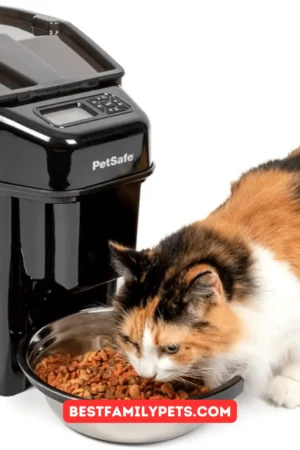
Review: PetSafe Simply Feed Automatic Feeder
-


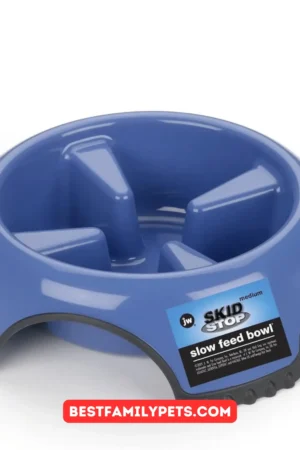
Review: JW Pet Skid Stop Slow Feed Bowl
-



Review: Dogit Slow Feeder Dog Bowl
-


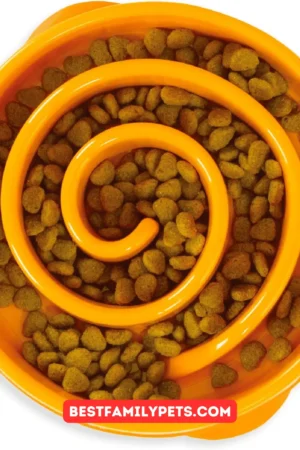
Review: Outward Hound Fun Feeder Slo Bowl
-


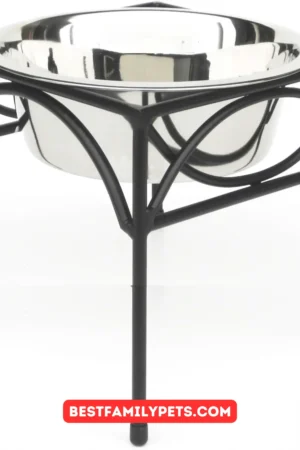
Review: NMN Products Raised Dog Bowls
-



Review: Pet Zone Adjustable Elevated Pet Feeder
-



Review: FOREYY Raised Pet Bowls for Small and Medium Dogs
-



Ringworm in Cats
-



Can Dogs Drink Almond Milk?
-


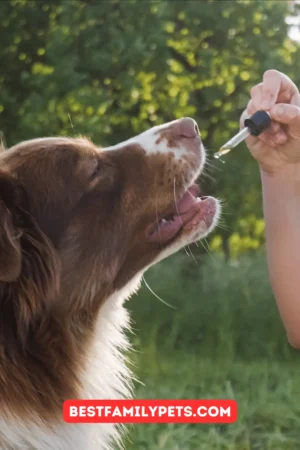
Hemp Oil vs. CBD Oil For Dogs
-



How Much CBD Should You Give Your Cat?
-



CBD And Senior Pets: Dosage And Benefits
-


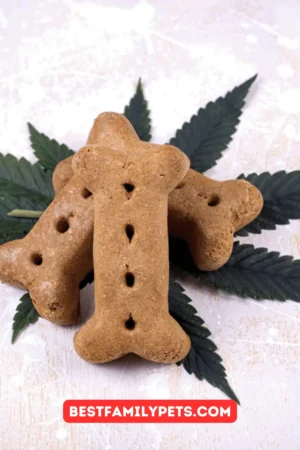
What Are the CBD Dog Treats Benefits?
-


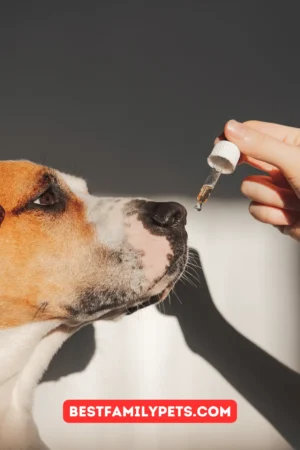
Is CBD Oil for Dogs worth the Money?
-



Hemp Oil for Dogs: Is it Safe?
-


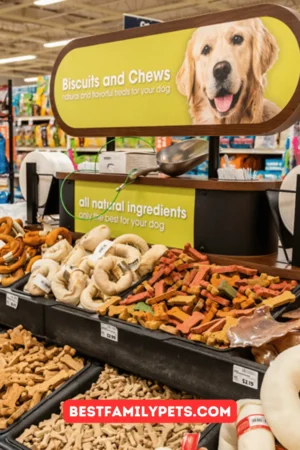
8 Valuable Tips Every First-Time and Experienced Dog Owner Should Know
-


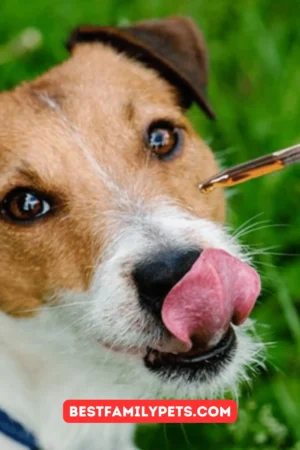
Thinking of Giving CBD to your Dogs? Read this First
-


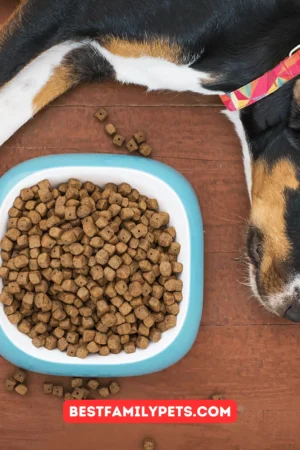
What Dogs Food Has Been Recalled 2019?
-



3 Things Every Cat Owner Should Know
-



CBD and Pets: Facts to know

